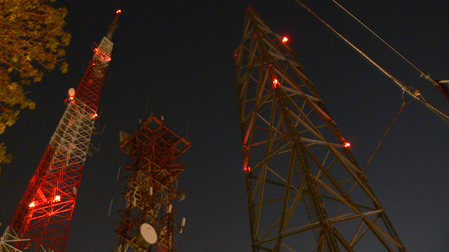Tech Groups Argue DTS Spillover Should be ‘Unlicensed’
It is too early to make the case spectrum is needed for ATSC 3.0, comments claim

WASHINGTON—A day after the APTS and NAB offered their comments requesting the expansion of Distributed Transmission Systems, tech groups—specifically New America’s Open Technology Institute and Public Knowledge—are making their case as to why DTS spillover signals at this time should be considered unlicensed.
The FCC Notice of Proposed Rulemaking that has resulted in these comments is proposing an expansion of the commission’s rules regarding DTS. However, OTI and PK are supporters of TV white spaces, the spectrum between TV stations and wireless broadband. The expansion of DTS would decrease the spectrum available for wireless broadband, they argue.
In the joint APTS, NAB comments, they say that expansion of DTS will help with the deployment of the ATSC 3.0 standard. OTI and PK counter by saying it is premature to take such action on that since there are few ATSC 3.0 services available to the public and the benefits aren’t yet known.
“At this early stage in the development of ATSC 3.0, the commission should not rely on promises of future services as the basis for another massive giveaway of spectrum to broadcasters,” the comments read.
Other potential issues with the current proposal is the possible creation of a DTS “Interference Area” more than twice the size of the current licensed coverage area of a broadcast station licensee, the tech groups claim. To help against this, the two organizations urge the FCC to not grant signal interference protection.
“Upgrading the status of spillover signals beyond DTS station’s areas to primary or secondary status could effectively grant broadcast licensees twice as much spectrum without even requiring that the license use the free spectrum to deploy services promised when ATSC 3.0 was authorized,” OTI and PK write.
Granting interference protection could also deny neighboring communities of other services, including TV white spaces, which could deter the use of vacant TV band spectrum to help try to close the rural connectivity divide, per the comments.
The professional video industry's #1 source for news, trends and product and tech information. Sign up below.
“DTS spillover signals should be considered unlicensed and should not confer interference protection rights against other licensed or unlicensed operations,” OTI and PK conclude.
The full comments are available through the FCC’s ECFS.
